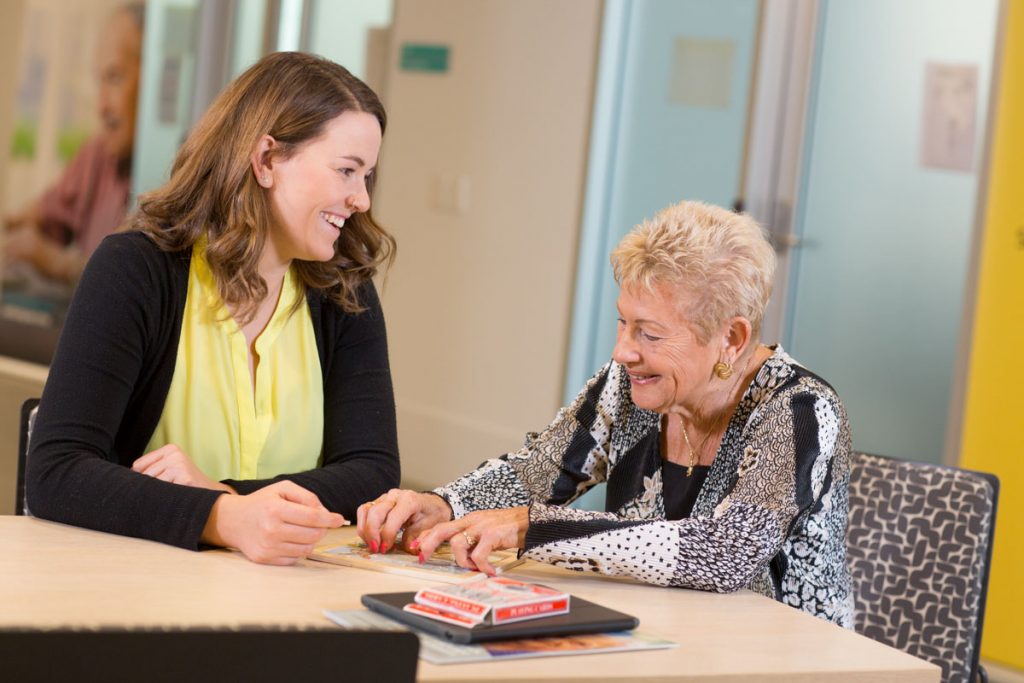What is Occupational Therapy?
Occupational therapists are qualified health professionals who work with people of all ages and abilities to do the things they need and want to in all aspects of life, such as taking care of oneself and others, working, volunteering, and participating in hobbies, interests and social events. Occupational therapists call these things “occupations”.
The primary goal of occupational therapy is to enable people to participate in the occupations of everyday life.
Occupational therapy is a client-centred health profession that involves ongoing assessments to understand what occupations are important to you, any current issues you may have in doing them, and understanding your goals. Occupational therapists will then work on any or all of the following to ensure you can participate in the occupations you need and want to do – enhancing your own personal life skills, adjusting the environment you do your occupations in, and adjusting the occupation itself.

Occupational therapists are experts in the relationships between what people do and their health and well-being, and work with people to help make every day living easier.
Occupational therapists assist people to manage ongoing symptoms and prevent complications by:
- building their knowledge and skills
- finding new ways of doing activities
- changing the environment to suit their needs
Occupational therapists can also prescribe, if necessary, devices and therapy equipment to help you do the activities you want and need to do. They will make sure you can use the device in the best way to meet your needs. This means that you will get a total solution and not just a product.
(Information from Occupational Therapy Australia https://www.otaus.com.au/ )
Occupational therapy may be useful for people through all stages of dementia. The 2016 Clinical Practice Guidelines and Principles of Care for People with Dementia specifically recommend that:
“People with dementia should be offered occupational therapy interventions which should include: environmental assessment and modification to aid independent function; prescription of assistive technology; and tailored intervention to promote independence in activities of daily living which may include problem solving, task simplification and education and skills training for their carer(s) and family”.
The COPE program is one example of how occupational therapists can assist people living with dementia and their families.
For Guidelines in full: https://cdpc.sydney.edu.au/research/clinical-guidelines-for-dementia/
